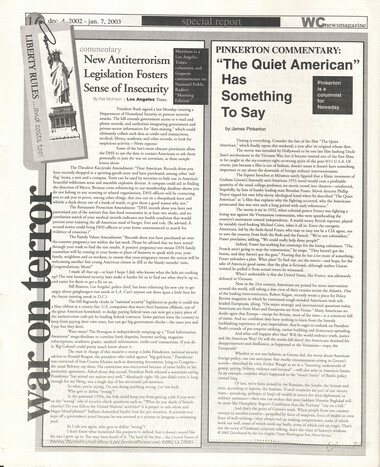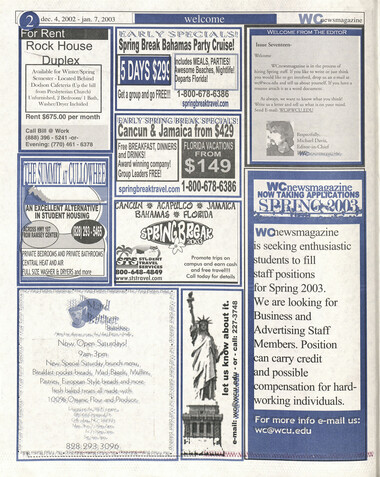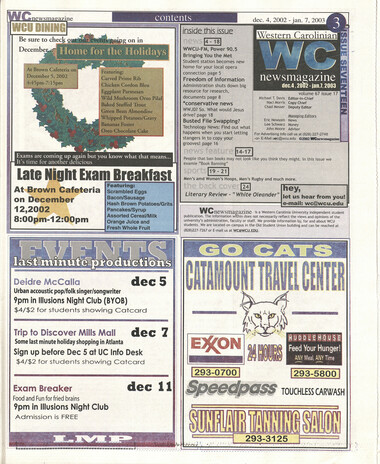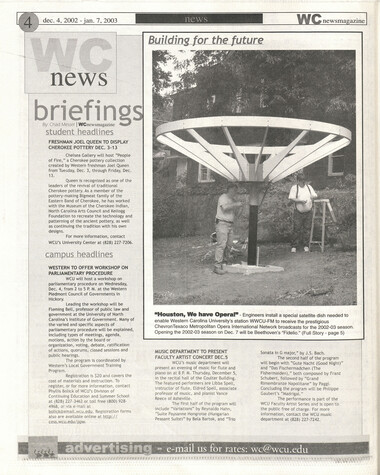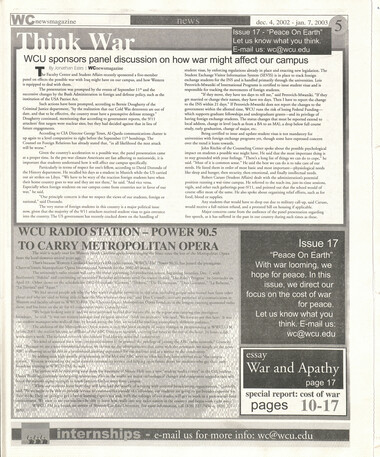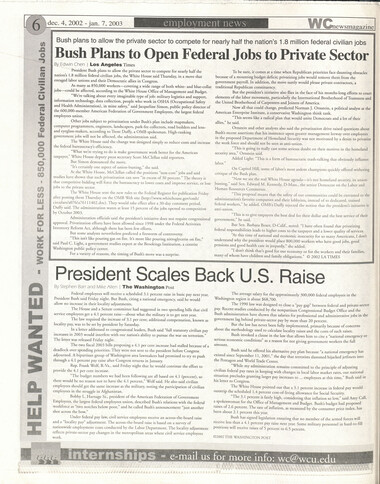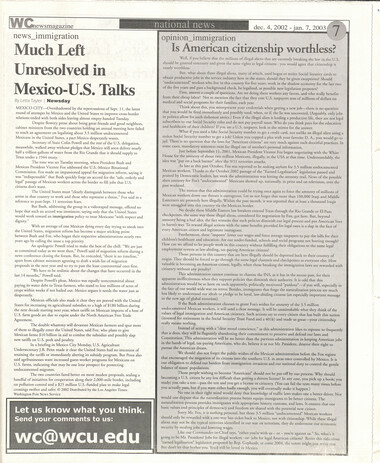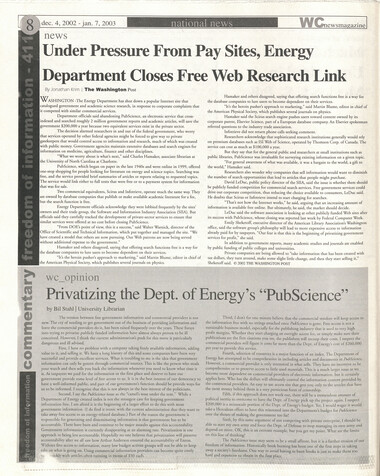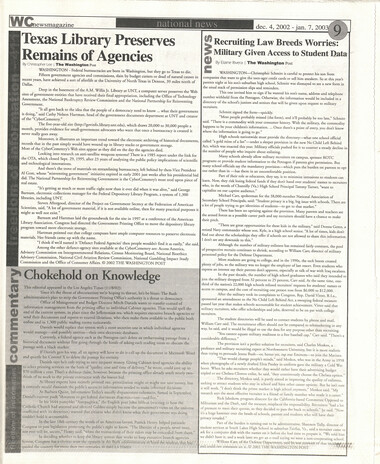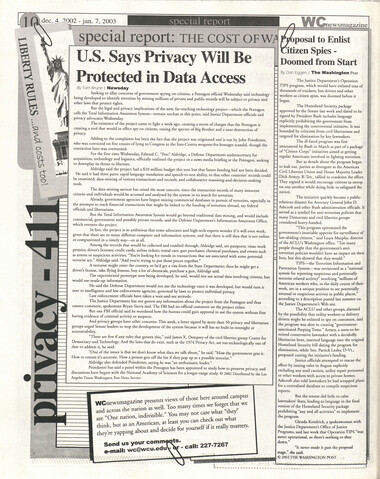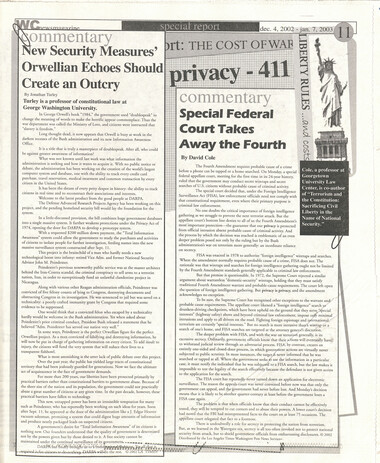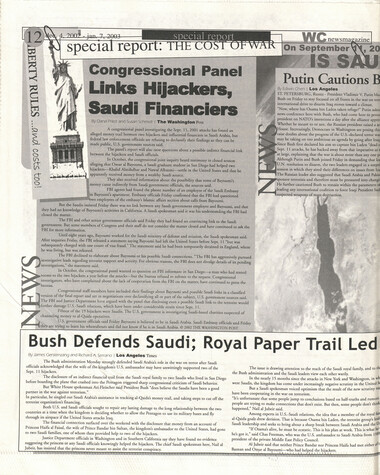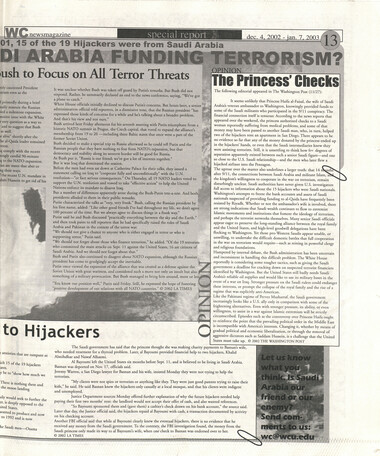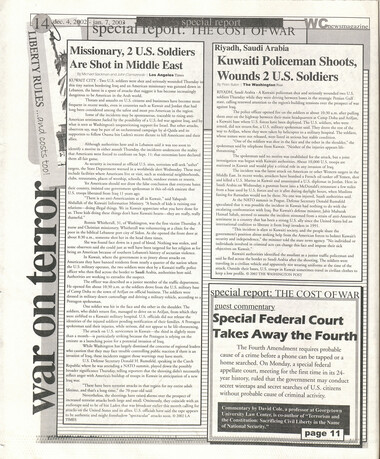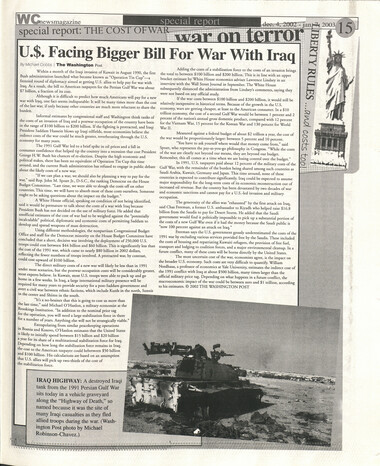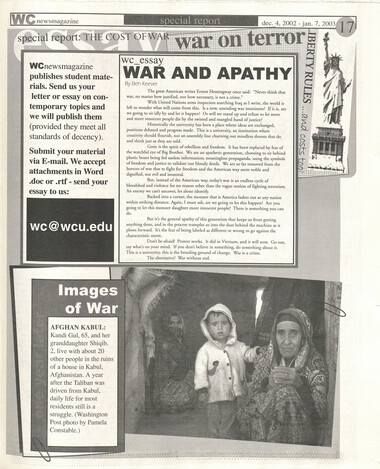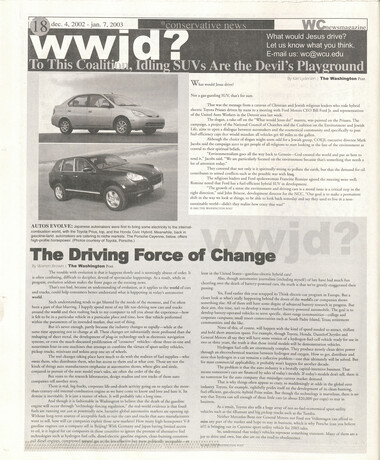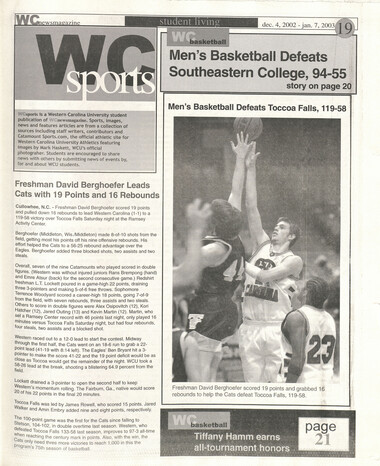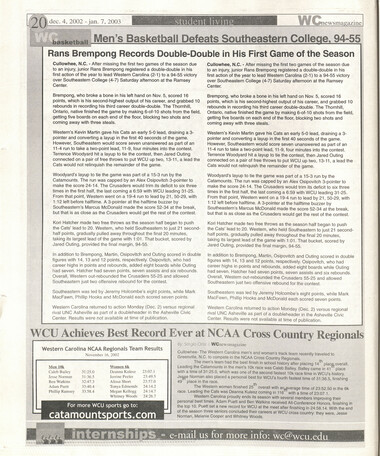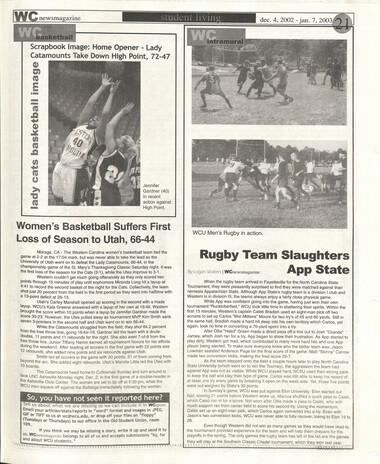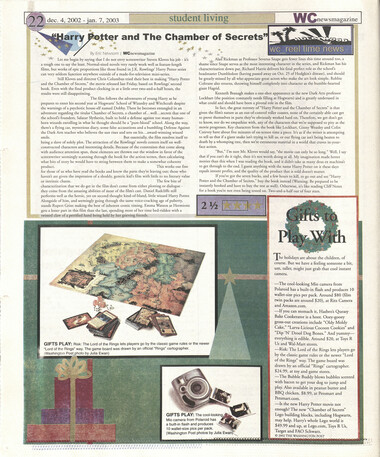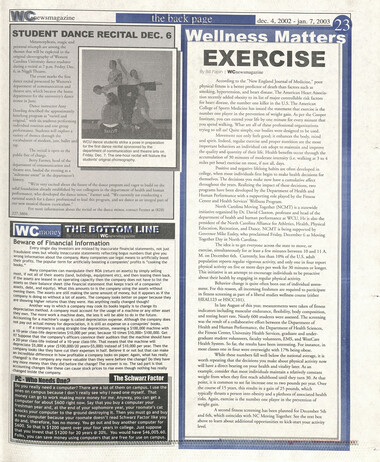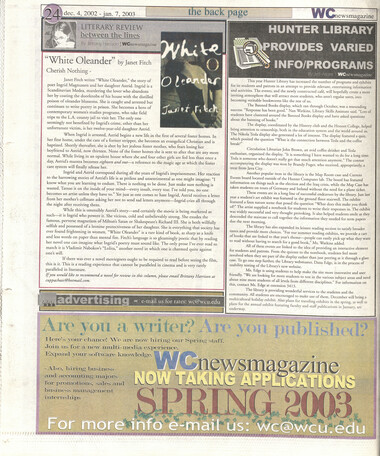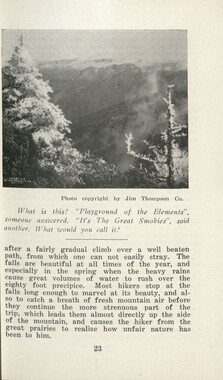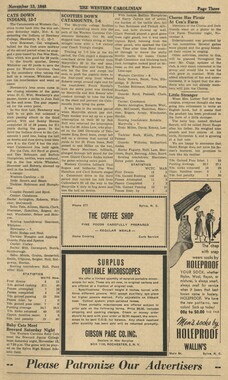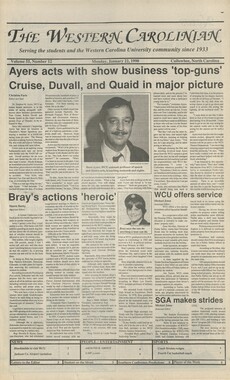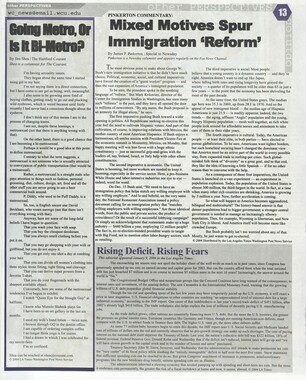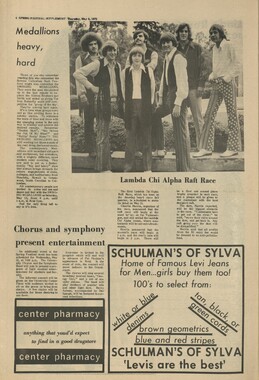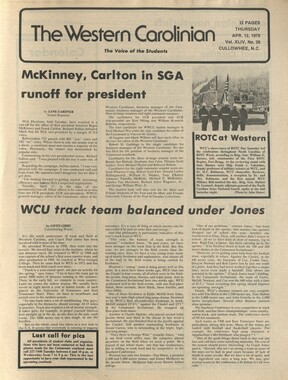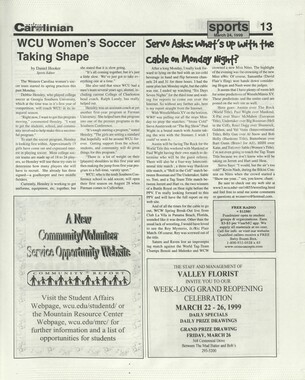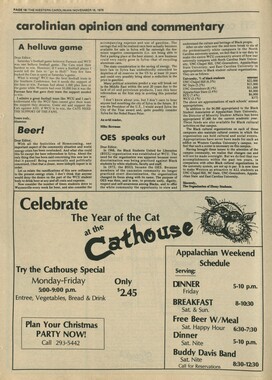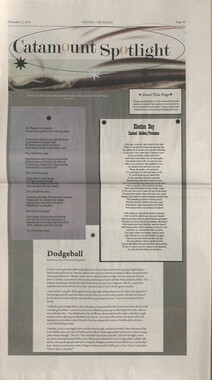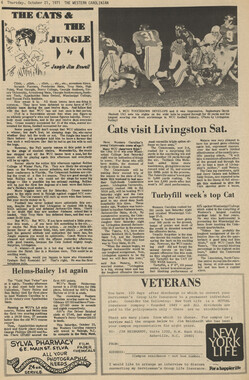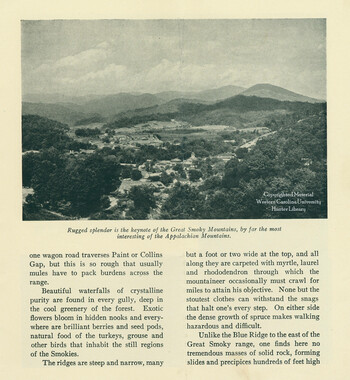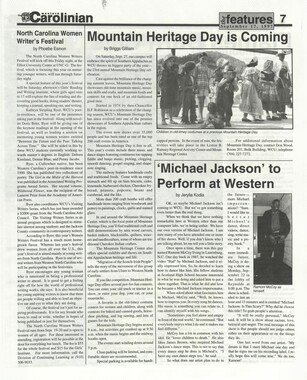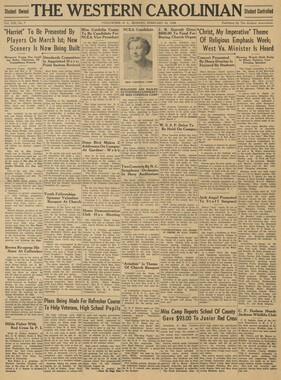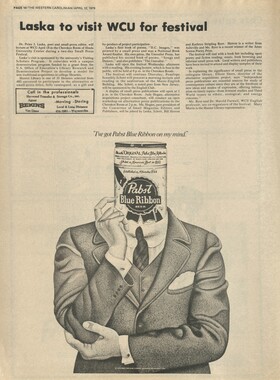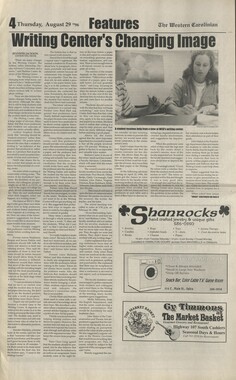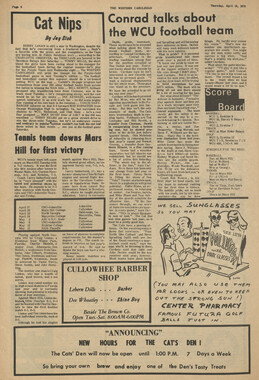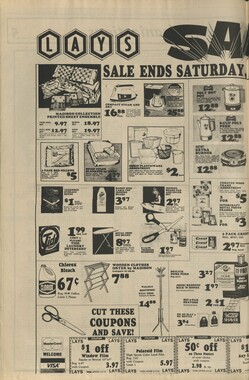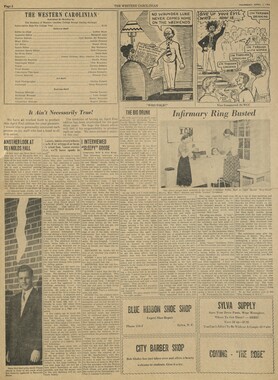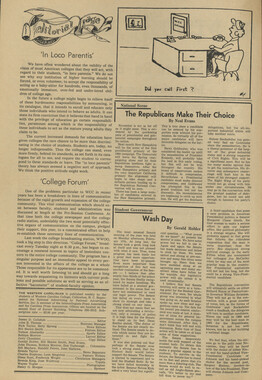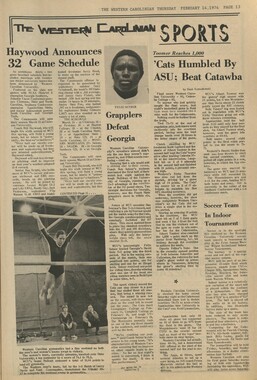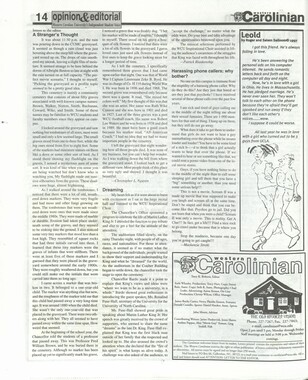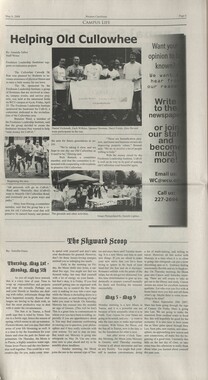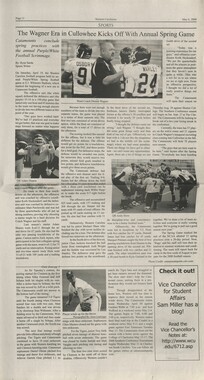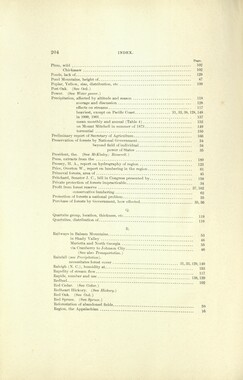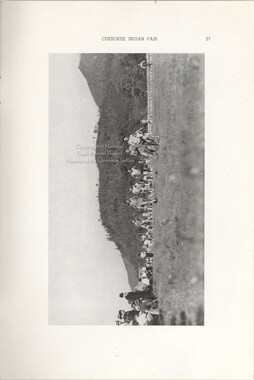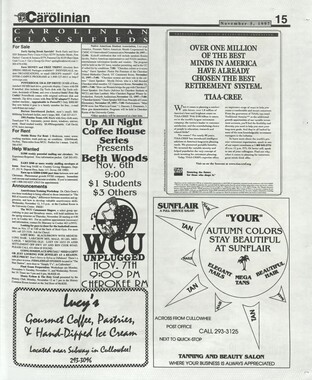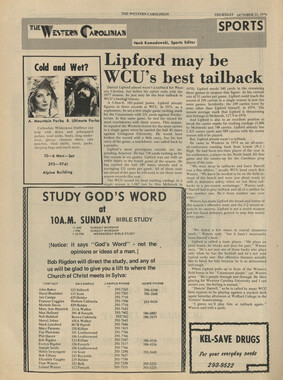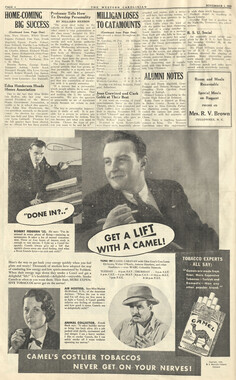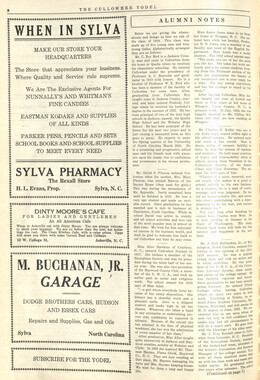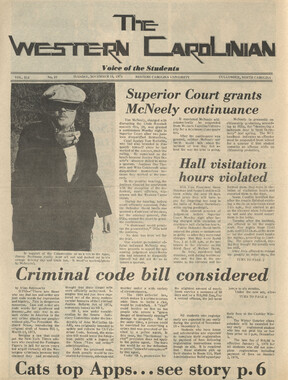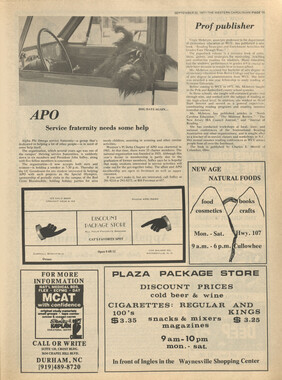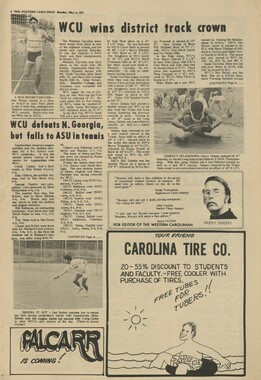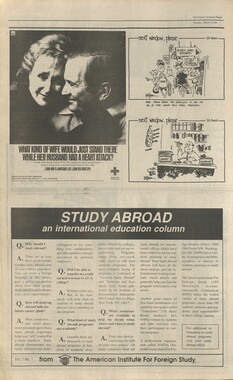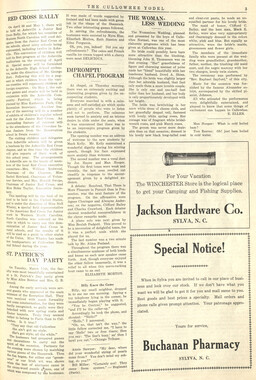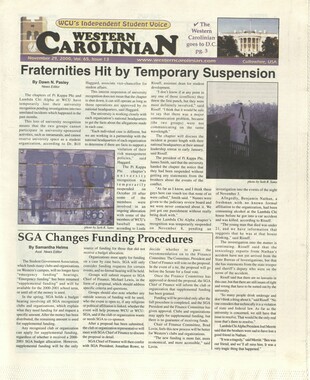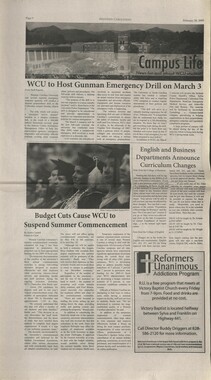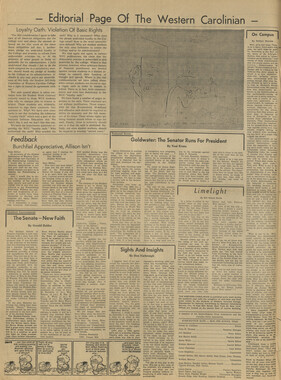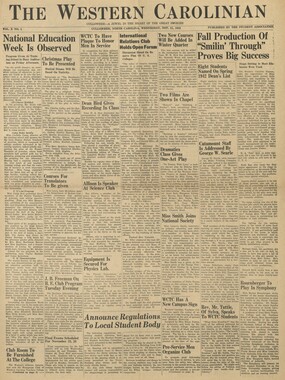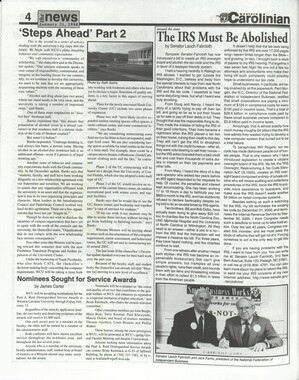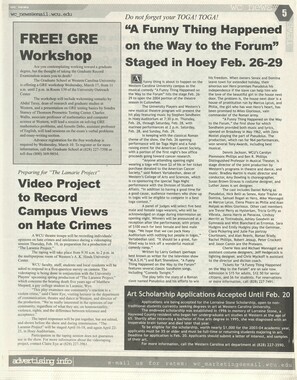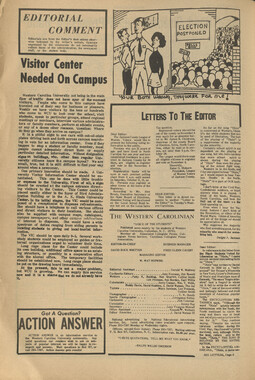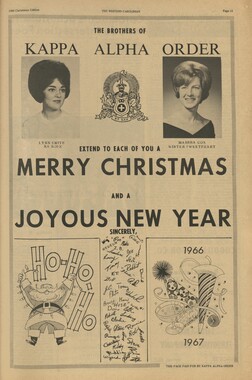Western Carolina University (20)
View all
- Canton Champion Fibre Company (2308)
- Cherokee Traditions (291)
- Civil War in Southern Appalachia (165)
- Craft Revival (1942)
- Great Smoky Mountains - A Park for America (2946)
- Highlights from Western Carolina University (430)
- Horace Kephart (941)
- Journeys Through Jackson (159)
- LGBTQIA+ Archive of Jackson County (85)
- Oral Histories of Western North Carolina (314)
- Picturing Appalachia (6873)
- Stories of Mountain Folk (413)
- Travel Western North Carolina (160)
- Western Carolina University Fine Art Museum Vitreograph Collection (129)
- Western Carolina University Herbarium (92)
- Western Carolina University: Making Memories (738)
- Western Carolina University Publications (2488)
- Western Carolina University Restricted Electronic Theses and Dissertations (146)
- Western North Carolina Regional Maps (71)
- World War II in Southern Appalachia (131)
University of North Carolina Asheville (6)
View all
- Allanstand Cottage Industries (62)
- Appalachian National Park Association (53)
- Bennett, Kelly, 1890-1974 (1463)
- Berry, Walter (76)
- Brasstown Carvers (40)
- Carver, George Washington, 1864?-1943 (26)
- Cathey, Joseph, 1803-1874 (1)
- Champion Fibre Company (233)
- Champion Paper and Fibre Company (297)
- Cherokee Indian Fair Association (16)
- Cherokee Language Program (22)
- Crowe, Amanda (40)
- Edmonston, Thomas Benton, 1842-1907 (7)
- Ensley, A. L. (Abraham Lincoln), 1865-1948 (275)
- Fromer, Irving Rhodes, 1913-1994 (70)
- George Butz (BFS 1907) (46)
- Goodrich, Frances Louisa (120)
- Grant, George Alexander, 1891-1964 (96)
- Heard, Marian Gladys (60)
- Kephart, Calvin, 1883-1969 (15)
- Kephart, Horace, 1862-1931 (313)
- Kephart, Laura, 1862-1954 (39)
- Laney, Gideon Thomas, 1889-1976 (439)
- Masa, George, 1881-1933 (61)
- McElhinney, William Julian, 1896-1953 (44)
- Niggli, Josephina, 1910-1983 (10)
- North Carolina Park Commission (105)
- Osborne, Kezia Stradley (9)
- Owens, Samuel Robert, 1918-1995 (11)
- Penland Weavers and Potters (36)
- Roberts, Vivienne (15)
- Roth, Albert, 1890-1974 (142)
- Schenck, Carl Alwin, 1868-1955 (1)
- Sherrill's Photography Studio (2565)
- Southern Highland Handicraft Guild (127)
- Southern Highlanders, Inc. (71)
- Stalcup, Jesse Bryson (46)
- Stearns, I. K. (213)
- Thompson, James Edward, 1880-1976 (226)
- United States. Indian Arts and Crafts Board (130)
- USFS (683)
- Vance, Zebulon Baird, 1830-1894 (1)
- Weaver, Zebulon, 1872-1948 (58)
- Western Carolina College (230)
- Western Carolina Teachers College (282)
- Western Carolina University (2005)
- Western Carolina University. Mountain Heritage Center (18)
- Whitman, Walt, 1819-1892 (10)
- Wilburn, Hiram Coleman, 1880-1967 (73)
- Williams, Isadora (3)
- Cain, Doreyl Ammons (0)
- Crittenden, Lorraine (0)
- Rhodes, Judy (0)
- Smith, Edward Clark (0)
- Appalachian Region, Southern (2569)
- Asheville (N.C.) (1923)
- Avery County (N.C.) (26)
- Blount County (Tenn.) (195)
- Buncombe County (N.C.) (1672)
- Cherokee County (N.C.) (283)
- Clay County (N.C.) (555)
- Graham County (N.C.) (236)
- Great Smoky Mountains National Park (N.C. and Tenn.) (519)
- Haywood County (N.C.) (3569)
- Henderson County (N.C.) (70)
- Jackson County (N.C.) (4909)
- Knox County (Tenn.) (35)
- Knoxville (Tenn.) (13)
- Lake Santeetlah (N.C.) (10)
- Macon County (N.C.) (420)
- Madison County (N.C.) (215)
- McDowell County (N.C.) (39)
- Mitchell County (N.C.) (132)
- Polk County (N.C.) (35)
- Qualla Boundary (982)
- Rutherford County (N.C.) (76)
- Swain County (N.C.) (2182)
- Transylvania County (N.C.) (270)
- Watauga County (N.C.) (12)
- Waynesville (N.C.) (86)
- Yancey County (N.C.) (72)
- Aerial Photographs (3)
- Aerial Views (60)
- Albums (books) (4)
- Articles (1)
- Artifacts (object Genre) (228)
- Bibliographies (1)
- Biography (general Genre) (2)
- Cards (information Artifacts) (38)
- Clippings (information Artifacts) (191)
- Copybooks (instructional Materials) (3)
- Crafts (art Genres) (622)
- Depictions (visual Works) (21)
- Design Drawings (1)
- Drawings (visual Works) (185)
- Envelopes (73)
- Exhibitions (events) (1)
- Facsimiles (reproductions) (1)
- Fiction (general Genre) (4)
- Financial Records (12)
- Fliers (printed Matter) (67)
- Glass Plate Negatives (381)
- Guidebooks (2)
- Internegatives (10)
- Interviews (815)
- Land Surveys (102)
- Letters (correspondence) (1013)
- Manuscripts (documents) (618)
- Maps (documents) (177)
- Memorandums (25)
- Minutes (administrative Records) (59)
- Negatives (photographs) (6090)
- Newsletters (1290)
- Newspapers (2)
- Notebooks (8)
- Occupation Currency (1)
- Paintings (visual Works) (1)
- Pen And Ink Drawings (1)
- Periodicals (193)
- Personal Narratives (10)
- Photographs (12976)
- Plans (maps) (1)
- Poetry (5)
- Portraits (4568)
- Postcards (329)
- Programs (documents) (181)
- Publications (documents) (2440)
- Questionnaires (65)
- Relief Prints (26)
- Sayings (literary Genre) (1)
- Scrapbooks (282)
- Sheet Music (2)
- Slides (photographs) (402)
- Songs (musical Compositions) (2)
- Sound Recordings (796)
- Specimens (92)
- Speeches (documents) (18)
- Tintypes (photographs) (8)
- Transcripts (322)
- Video Recordings (physical Artifacts) (23)
- Text Messages (0)
- A.L. Ensley Collection (275)
- Appalachian Industrial School Records (7)
- Appalachian National Park Association Records (336)
- Axley-Meroney Collection (2)
- Bayard Wootten Photograph Collection (20)
- Bethel Rural Community Organization Collection (7)
- Blumer Collection (5)
- C.W. Slagle Collection (20)
- Canton Area Historical Museum (2110)
- Carlos C. Campbell Collection (462)
- Cataloochee History Project (64)
- Cherokee Studies Collection (4)
- Daisy Dame Photograph Album (5)
- Daniel Boone VI Collection (1)
- Doris Ulmann Photograph Collection (112)
- Elizabeth H. Lasley Collection (1)
- Elizabeth Woolworth Szold Fleharty Collection (4)
- Frank Fry Collection (95)
- George Masa Collection (173)
- Gideon Laney Collection (452)
- Hazel Scarborough Collection (2)
- Hiram C. Wilburn Papers (28)
- Historic Photographs Collection (236)
- Horace Kephart Collection (861)
- Humbard Collection (33)
- Hunter and Weaver Families Collection (1)
- I. D. Blumenthal Collection (4)
- Isadora Williams Collection (4)
- Jesse Bryson Stalcup Collection (47)
- Jim Thompson Collection (224)
- John B. Battle Collection (7)
- John C. Campbell Folk School Records (80)
- John Parris Collection (6)
- Judaculla Rock project (2)
- Kelly Bennett Collection (1482)
- Love Family Papers (11)
- Major Wiley Parris Civil War Letters (3)
- Map Collection (12)
- McFee-Misemer Civil War Letters (34)
- Mountain Heritage Center Collection (4)
- Norburn - Robertson - Thomson Families Collection (44)
- Pauline Hood Collection (7)
- Pre-Guild Collection (2)
- Qualla Arts and Crafts Mutual Collection (12)
- R.A. Romanes Collection (681)
- Rosser H. Taylor Collection (1)
- Samuel Robert Owens Collection (94)
- Sara Madison Collection (144)
- Sherrill Studio Photo Collection (2558)
- Smoky Mountains Hiking Club Collection (616)
- Stories of Mountain Folk - Radio Programs (374)
- The Reporter, Western Carolina University (510)
- Venoy and Elizabeth Reed Collection (16)
- WCU Gender and Sexuality Oral History Project (32)
- WCU Mountain Heritage Center Oral Histories (25)
- WCU Oral History Collection - Mountain People, Mountain Lives (71)
- WCU Students Newspapers Collection (1920)
- Western North Carolina Tomorrow Black Oral History Project (69)
- William Williams Stringfield Collection (2)
- Zebulon Weaver Collection (109)
- African Americans (390)
- Appalachian Trail (35)
- Artisans (521)
- Cherokee art (84)
- Cherokee artists -- North Carolina (10)
- Cherokee language (21)
- Cherokee pottery (101)
- Cherokee women (208)
- Church buildings (189)
- Civilian Conservation Corps (U.S.) (111)
- College student newspapers and periodicals (2009)
- Dams (107)
- Dance (1023)
- Education (222)
- Floods (61)
- Folk music (1015)
- Forced removal, 1813-1903 (2)
- Forest conservation (220)
- Forests and forestry (1184)
- Gender nonconformity (4)
- Great Smoky Mountains National Park (N.C. and Tenn.) (181)
- Hunting (45)
- Landscape photography (25)
- Logging (119)
- Maps (83)
- Mines and mineral resources (8)
- North Carolina -- Maps (18)
- Paper industry (38)
- Postcards (255)
- Pottery (135)
- Railroad trains (72)
- Rural electrification -- North Carolina, Western (3)
- School integration -- Southern States (2)
- Segregation -- North Carolina, Western (5)
- Slavery (5)
- Sports (452)
- Storytelling (243)
- Waterfalls -- Great Smoky Mountains (N.C. and Tenn.) (66)
- Weaving -- Appalachian Region, Southern (280)
- Wood-carving -- Appalachian Region, Southern (328)
- World War, 1939-1945 (173)
Western Carolinian Volume 67 Number 17
Item
Item’s are ‘child’ level descriptions to ‘parent’ objects, (e.g. one page of a whole book).
-
-
2002 - jan. 7, 2003 cominentary New Antiterrorism Legislation Fosters Sense of Insecurity By Patt Morrison I Los Angeles Times s ecial re ort ewsma azine Morrison is a Los Angeles Times columnist and frequent commentator: on National Public Radio's "Morning Edition. " PINKERTON COMMENTARY: "The Quiet American" Has Something To say by James Pinkerton Pinkerton is a columnist for Newsday President Bush signed a law Monday creating a Department of Homeland Security to prevent terrorist attacks. The bill extends government access to e-mail and phone records, and authorizes integrating government and private-sector information for "data-mining," which could ultimately collate such data as credit-card transactions, medical, library, academic and other records, to look for suspicious activity—News reports> Some of the law's more obscure provisions allow the DHS to use the data to contact Americans to ask them personally to join the war on terrorism, as these sample letters show: The Theodore Kaczynski Amendment: "Dear American: Records show you have recently shopped at a sporting-goods store and have purchased, among other 'red- flag' items, a tent and a compass. Tents can be used by terrorists to hide out in America's beautiful wilderness areas and assemble explosive devices. A compass could aid in finding the direction of Mecca. Because cross-referencing to our membership database shows you do not belong to any scouting or related organization, DHS officers will be contacting you to ask you to prove, among other things, that you can tie a sheepshank knot and whittle a duck decoy out of a hunk ofwood, or give them a good reason why not." The Restaurant Protection Amendment: "DHS records show you have not patronized any of the nation's fine fast-food restaurants in at least two weeks, and no correlation-search of your medical records indicates any health condition that would prevent your enjoying the all-American meal of burger, fries and cola. (Be advised: A second notice could bring DHS officers to your home unannounced to search for evidence of couscous.) " The Family Values Amendment: "Records show you have purchased an over- the-counter pregnancy test within the last week. Please be advised that we have sorted through your trash to find the test results. A positive pregnancy test means DHS family counselors will be coming to your home or place of business to speak with you, your family, neighbors and co-workers, to ensure that your pregnancy means the nation will be welcoming another fine young American citizen in (fill in the blank) months' time. Congratulations, Mom!" I made all that up—at least I hope I did; who knows what the feds are cooking up? The new homeland security laws make it harder for us to find out what they're up to, and easier for them to get a fix on us. Bill Bratton, Los Angeles' police chief, has been exhorting his new city to get angry about gangbangers run amok in L.A. Can't anyone out there spare a little fury for the forces running amok in D.C.? The bill flagrantly cloaks in "national security" legislation so porky it could win a blue ribbon at a county fair. U.S. companies that move their business offshore, out of the great American homeland, to dodge paying federal taxes can now get a juicy piece of the antiterrorism cash-pie by landing federal contracts. Some patriots leave the country to keep from paying their own taxes, but can get big government checks—the taxes you and I pay but they don't. Want more? The Pentagon is independently ramping up a "Total Information Awareness" mega-database to correlate bank deposits, Internet surfing, magazine subscriptions, academic grades, medical information, credit-card transactions. If you do it, Big Colonel could pretty much know about it. The man in charge of this massive e-snoop is John Poindexter, national security adviser to Ronald Reagan, the president who railed against "big gub'mint." Poindexter was convicted of Iran-Contra felonies such as destroying documents, lying to Congress— the usual Beltway rap sheet. His conviction was overturned because of some bollix in his immunity agreement. Asked about this record, President Bush released a statement saying Poindexter "has served our nation very well." Absolutely right: He just didn't serve it long enough for my liking, not a single day of his six-month jail sentence. So what, you're saying. I'm not doing anything wrong. Let 'em look. Who gets to define "wrong"? In the paranoid 1950s, the feds could keep you from getting a job if you were on the "wrong" side of security-check questions such as, "What do you think of female chastity? Do you follow the United Nations' activities? Is it proper to mix white and Negro blood plasma?" Indiana demanded loyalty tests for pro wrestlers. A scientist was kept offa government panel because he was arrested at a protest to integrate a swimming pool. So I ask you again, who gets to define "wrong"? I don't know what homeland this purports to defend, but it doesn't sound like the one I grew up in. You may have heard of it. The land of the free... the United States of CLATIMÉS Timing is everything. Consider the fate of the film "The Quiet American," which finally opens this weekend, a year after its original release date. The movie was intended by Hollywood to be one last film bashing Uncle Sam's involvement in the Vietnam War, but it became instead one of the first films to be caught in the my-country-right-or-wrong spirit of the post-9/11 U.S.A. Of course, just because a film is out of fashion, doesn't mean it doesn't have something important to say about the downside of foreign military interventionism. The hipster honchos at Miramax surely figured that a filmic treatment of Graham Greene's famously anti-American 1955 novel would coax a profitable quantity of the usual college-professor, art-movie crowd into theaters—reinforced, hopefully, by fans of hunky leading man Brendan Fraser. Movie director Phillip Noyce tipped his own lefty-dovey ideological hand when he described "The Quiet American" as "a film that explains why the fighting occurred, why the Americans prosecuted that war over such a long period with such vehemence. The movie is set in 1952, when colonial-power France was fighting a losing war against the Vietnamese communists, who were spearheading the country's movement toward independence. A world-weary British reporter, played by suitably tired-looking Michael Caine, takes it all in. Enter the energetic Americans, led by the fresh-faced Fraser, who may or may not be a CIA agent, out to save the country from both the Reds and the French. "We're not colonialists," Fraser proclaims, adding, "We could really help these people!" Indeed, Fraser has 'nothing but contempt for the losing colonizers. "The French aren't going to stop the communists," he snaps. "They haven't got the brains, and they haven't got the guts." Proving that he has a lot more of something, Fraser unleashes a plan. What plan? To find out, see the movie—and hope, for the sake of America's good name, that the plan is fictional, although author Greene insisted he pulled it from actual events he witnessed. What's undeniable is that the United States, like France, was ultimately defeated in Vietnam. Now in the 21st century, Americans are poised for more intervention around the world, still taking a dim view of their cousins across the Atlantic. One of the leading interventionists, Robert Kagan, recently wrote a piece for Policy Review magazine in which he contrasted tough-minded Americans with soft- headed Europeans, jibing, "On major strategic and international questions today, Americans are from Mars and Europeans are from Venus." Many Americans no doubt agree that Europe—except for Britain, most of the time—is a continent full of sissies. And so, confident they have nothing to learn from the bitterly backlashing experience of past imperialism, they're eager to embark on President Bush's crusade of pre-emptive striking, nation building and democracy spreading. And what will happen after that? Will the world embrace truth, justice and the American Way? Or will the results fall short? Are Americans destined for disappointment and disillusion, as happened to the Venusians—oops, the Europeans? Whether or not one believes, as Greene did, the worst about American foreign policy, one can anticipate that murky circumstances arising in Greene's novels—described by critic Evelyn Waugh as set in a "haunting underworld of gossip, spying, bribery, violence and betrayal"—will also arise in America's future. As an example, consider what's happened to the "moral clarity" of Bush's policy toward Iraq. Of late, we've been joined by the Russians, the Saudis, the Syrians and even, according to reports, the Iranians. If such countries are part of our victory team—partaking, perhaps, of Iraq's oil wealth in return for their diplomatic or military assistance—then one can reckon that post-Saddam Hussein Baghdad will be more like Humphrey Bogart's Casablanca than the Puritans' "city on a hill." And that's the point of Greene's work. When people from one country venture to another country—propelled by force of weapons, force of wealth or even force of well-wishing—they always end up making compromises, some of which work out well, some of which work out badly, some of which end up tragic. That's not the voice of Graham's cynicism talking; that's the voice of history's wisdom. 0 2002 Distributed by the Los Angeles Times-Washington Post News Service
Object
Object’s are ‘parent’ level descriptions to ‘children’ items, (e.g. a book with pages).
-
The Western Carolinian is Western Carolina University's student-run newspaper. The paper was published as the Cullowhee Yodel from 1924 to 1931 before changing its name to The Western Carolinian in 1933.
-
